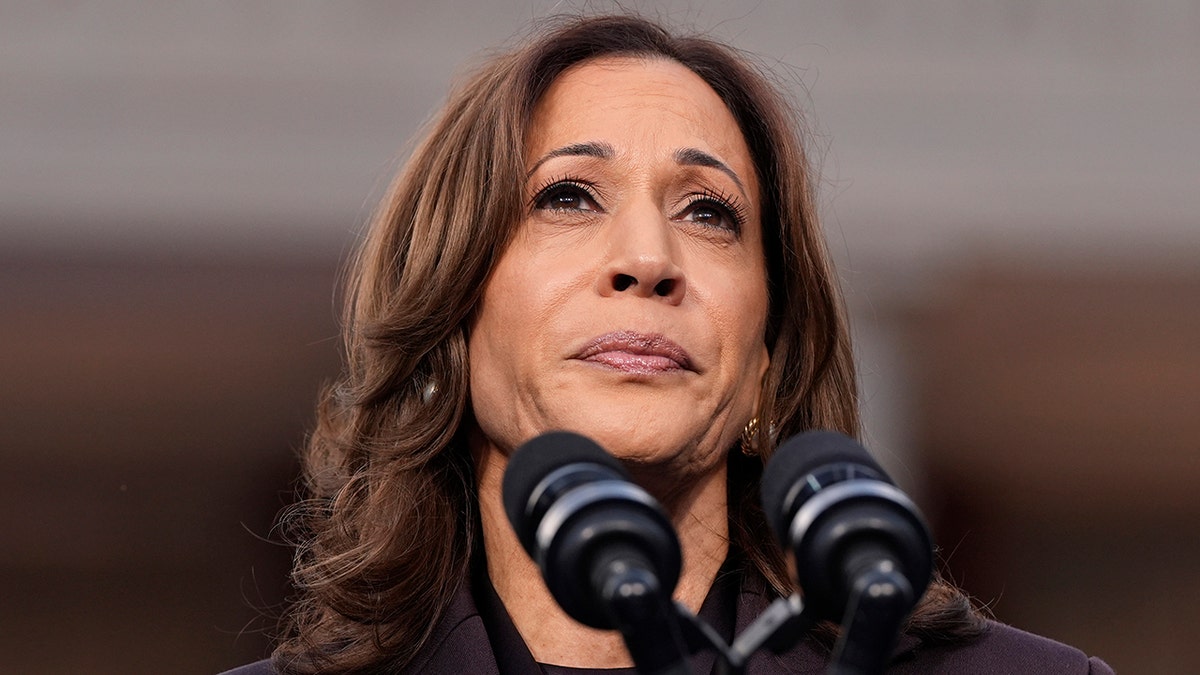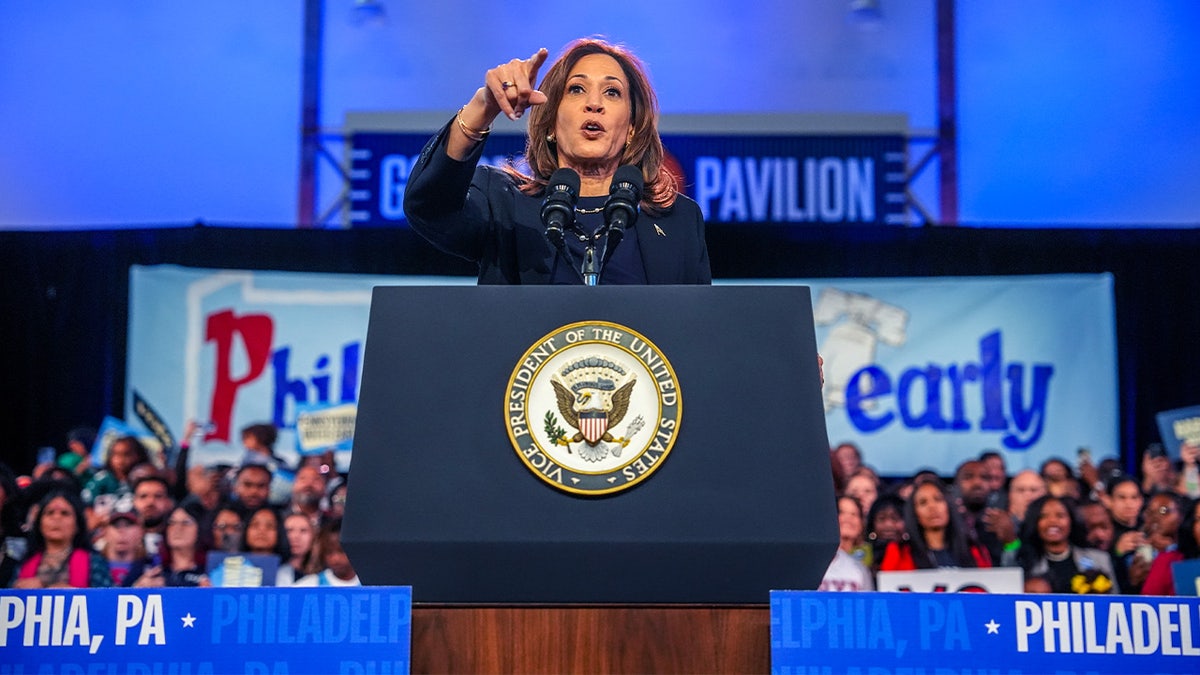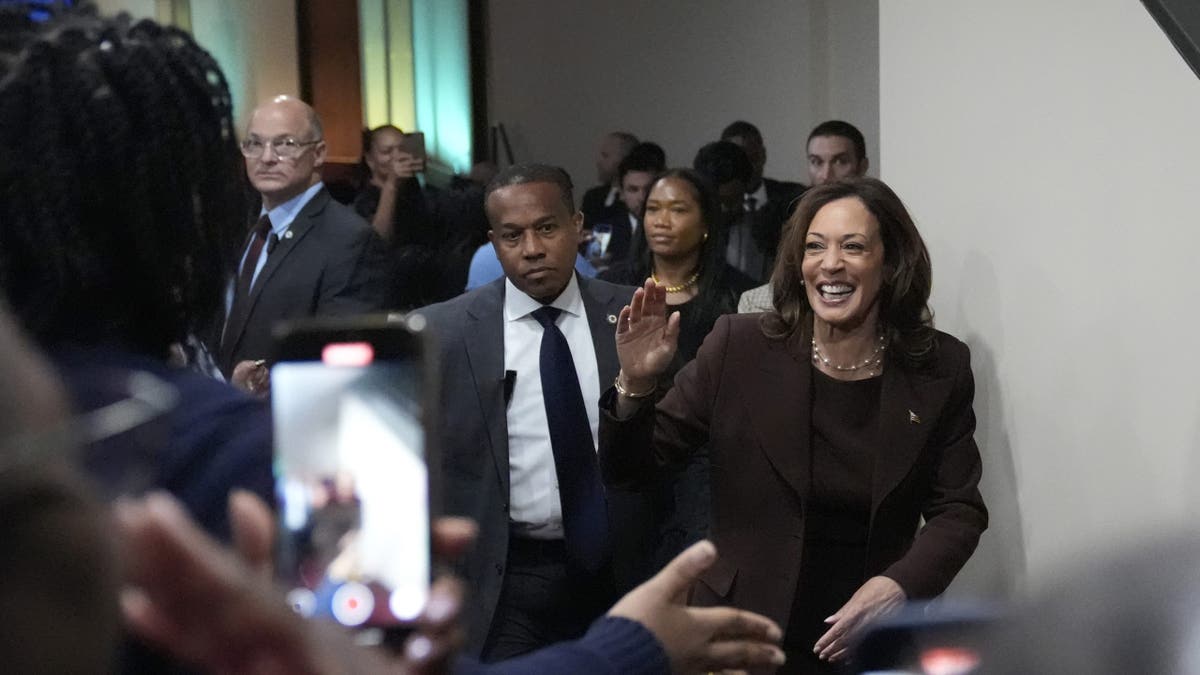Black Harris staffers are accusing the campaign leadership of mistreatment and “outright racial discrimination” in a damning new article outlining numerous allegations against the now defunct campaign.
The New York Times published a story Sunday titled “How Alarmed Harris Staffers Went Rogue to Reach Black and Latino Voters.” The story details a clandestine operation by some campaign staffers who ignored directives from the top and took matters into their own hands after feeling frustrated by the campaign’s lack of sufficient effort to reach voters of color in Philadelphia.
“Many staff members felt that Philadelphia’s racially diverse neighborhoods were ignored,” the Times story reads, adding that “Black campaign staff members and political operatives said campaign leadership dismissed concerns that Democrats were taking their base for granted.”

Vice President Kamala Harris delivers a concession speech after the 2024 presidential election, on Wednesday, Nov. 6, on the campus of Howard University in Washington, D.C. (AP/Jacquelyn Martin)
As the election drew closer, the frustration with campaign leadership on the issue reached a boiling point, according to more than 30 staffers interviewed by The Times.
“After Ms. Harris’ loss, Black campaign employees set up a call to talk about career opportunities with Angela Rye, a political strategist and podcast host. The discussion quickly shifted as they shared their anger at how the campaign had treated them, and how underfunded and haphazard their field operations had been in several battleground states, according to a recording of the call obtained by The Times,” the article reads.
Some staffers were also reportedly peeved that the campaign did not hire enough people of color or contract with consulting firms that had Black or Latino owners.
HARRIS CAMPAIGN STILL ASKING FOR DONATIONS WEEKS AFTER MASSIVE LOSS TO TRUMP
The Times story cites staff members who alleged that many campaign offices in Philadelphia were “filthy and lacked basic supplies like tables, chairs, cleaning products and printers.” Some campaign offices targeting predominantly Black communities were moved to upscale areas, far from the areas they were assigned to serve, according to the Times.

Democratic presidential nominee, U.S. Vice President Kamala Harris speaks during a campaign rally at The Alan Horwitz “Sixth Man” Center on October 27, 2024 in Philadelphia, Pennsylvania. (Andrew Harnik/Getty Images)
The Harris campaign reportedly commissioned an internal survey, which concluded “that Black staff members were frustrated with campaign leaders and felt that their ideas were ignored at a rate far higher than their peers,” according to the Times.

“Some complained of outright racial discrimination. The campaign’s leadership was made aware of the survey’s results,” the article says.
Staffers were reportedly afraid to leak these allegations to the press for fear of ruining future job prospects. The Times cited an all-staff call after the election hosted by Quentin Fulks, the principal deputy campaign manager, who allegedly told staffers that talking to the media would hurt their careers.
Harris campaign spokeswoman, Lauren Hitt, reportedly denied that Fulks had “used that language or tone on the call, and said that he had instead counseled staff members against saying something in a moment of anger that could come to hurt themselves or the vice president,” the Times noted.
The article features Quentin James, founder of the Collective PAC, a group that focuses on Black elected officials and voters that worked with the Harris campaign, who revealed “frantic staff members in Philadelphia, Detroit and North Carolina calling him in the final weeks of the race to say they did not have enough money to provide food or water to volunteers.”
TRUMP SENDS MESSAGE TO KAMALA HARRIS SUPPORTERS DURING ‘MEET THE PRESS’ INTERVIEW
Still, “Harris campaign leaders seemed in denial about the situation in Philadelphia,” the Times wrote.
“Late on election night, Jen O’Malley Dillon, the campaign chair, wrote an all-staff email saying that the Harris campaign had ‘over-performed turnout expectations there,’ especially in areas with nonwhite voters.”

But it was Trump who over performed with key demographics in Pennsylvania, improving his numbers in predominantly-Black and Latino areas which helped him win the critical battleground state and ultimately the presidency on Election Night.

Democratic presidential nominee Vice President Kamala Harris greets attendees as she departs after speaking during a service at the Church of Christian Compassion, Sunday, Oct. 27, 2024, in Philadelphia. (AP Photo/Susan Walsh)
Harris, by contrast, netted more than 30,000 less votes in Philadelphia than President Biden did in 2020.
Some Democratic operatives and campaign staffers still disagree on whether it was voter outreach that fell short with people of color or a lack of relatable messaging by the candidate.


